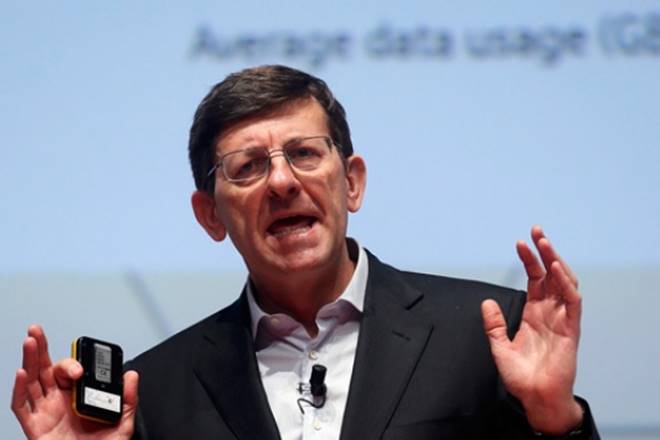Attacking Reliance Jio’s business model, Vodafone Group CEO Vittorio Colao has written to Union telecom minister Manoj Sinha that the new entrant’s assumptions on recovering costs in the future are “unrealistic” and it is “undesirable” for the sector to be regulated on the “ambition” of a new operator. Colao also said that reduction in mobile termination charges (MTC), on which Jio is locked in a bitter war of words with Bharti Airtel, Vodafone India and Idea Cellular, will impact mobile networks in rural areas and will force companies to shut down towers. “RJio is also assuming that it can recover its costs many years into the future. However, continued under-pricing of services leads to a rapidly increasing cost per subscriber, recovery of which will require higher ARPUs in future, which is unfeasible/ unrealistic. It is undesirable for a critical core industry like telecom to be regulated based on the ambition of a new operator with no history of financial sustenance,” Colao said in his letter to Sinha on August 22.
It is also clear from the Trai’s industry workshop on MTC that Jio has assumed continued growth of an implausible level of paid traffic on its network. However, the present traffic levels are a result of extreme promotional activity and generated by incurring huge losses, he added. Vodafone, which has invested more than `1.34 lakh crore in India and claims to be the largest FDI investor, shared Colao’s letter with the media. On the contentious issue of MTC, Colao said, “We are seriously alarmed to see reports that the Regulator (Trai) is considering a reduction in MTC at a time when the industry is facing such immense hardships. Any move to further reduce MTC risks destroying the very companies that have invested to build this industry.” The existing call termination rate of 14 paisa per minute is already below cost which at present is more than 30 paise, he explained, adding that this damage the economic case for connecting rural areas because traffic is largely from urban to rural, with little call origination revenue in rural areas, he added.
“Even at the present MTC rates, 15-20% of our sites run at a loss. Any reduction in MTC risks large scale site shut-down of already unprofitable sites in rural India and which would greatly diminish the population coverage of mobile telephony,” Colao warned, adding that there is an urgent need to ensure recognition of the work done principle and cost-based MTC to ensure that financial investments in rural networks in particular that remain viable. The Vodafone chief suggested reducing the interest rates for deferred spectrum payments to 6.25% in line with the improved macro-economic trends as well as increasing the period of payment for spectrum.
Colao also said that the success of reaching telecom to rural and poor citizens was the bold move to Calling Party Pays (CPP) in 2003. It is relevant to note that nowhere in the world do Bill and Keep (BAK) and CPP regime co-exist as is being proposed by new operator. In BAK regimes, the consumers pay for incoming calls, which is unrealistic for Indian consumers. “There is a view being propagated by the new entrant that as a 4G-only operator, it has a cost advantage in the region of 70% compared to the established 2G/3G/4G operators. There is no evidence – either Indian or international to support such a claim. If this was indeed true, there would be a number of 4G-only operators emerging around the world, which is not the case,” he explained.

